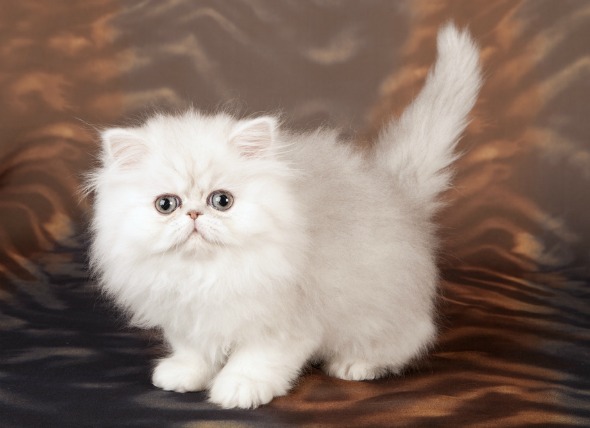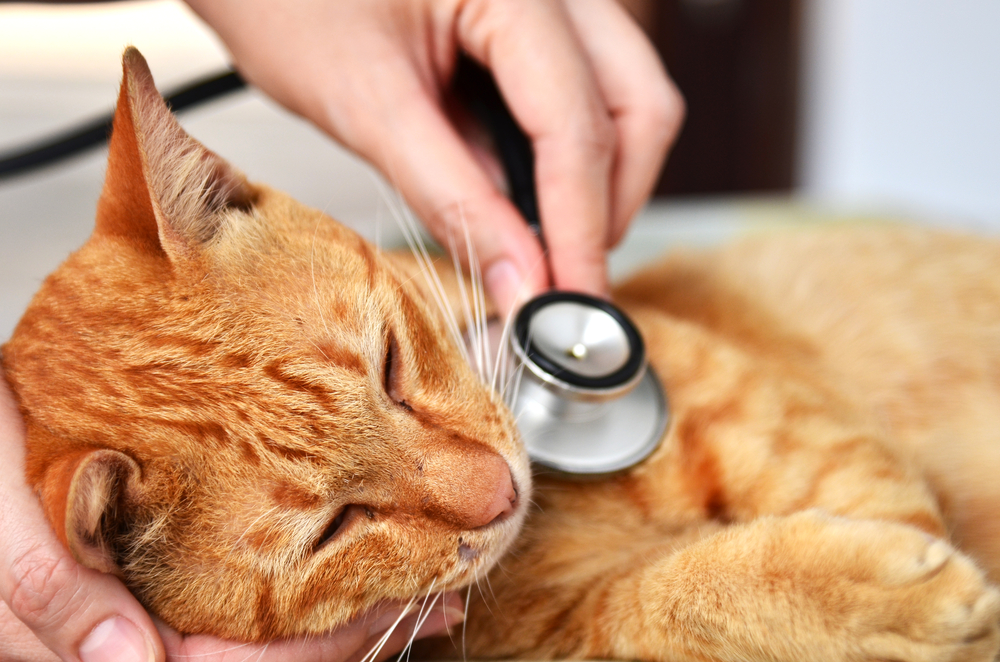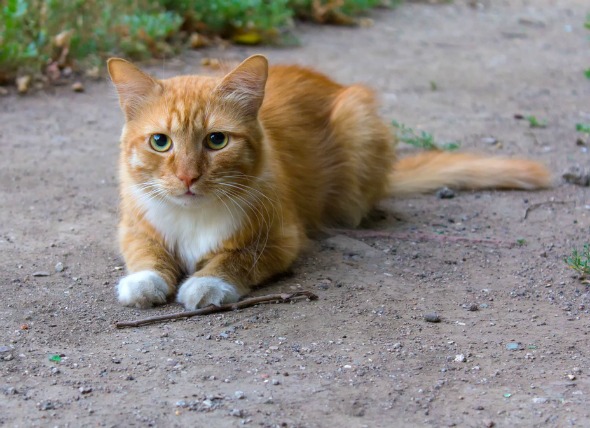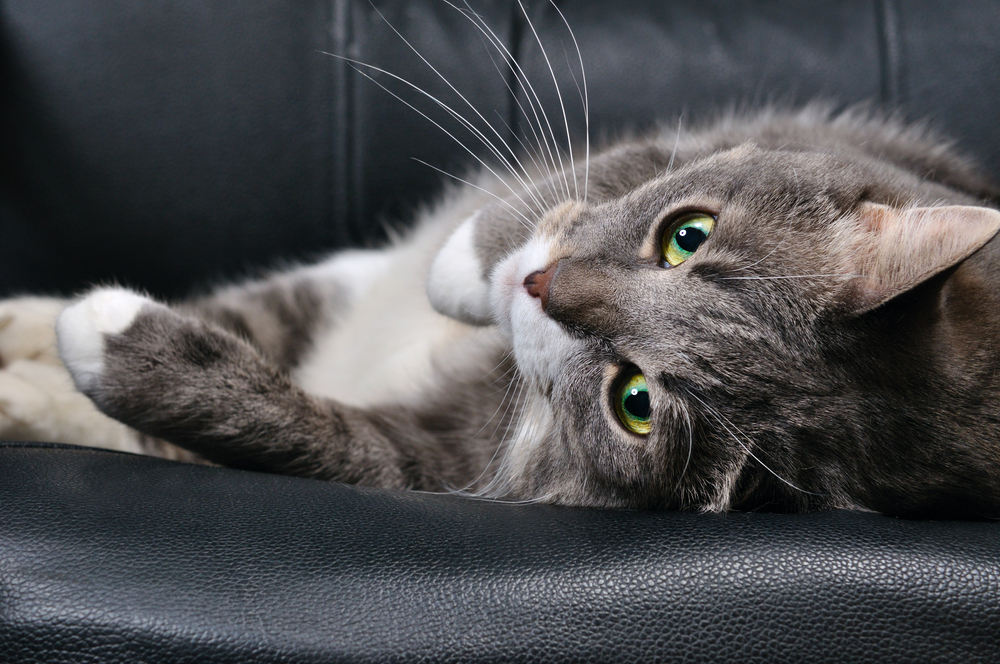
Vitamin D is vital in regulating the calcium and phosphorous balance in your cat's body. It also promotes the retention of calcium, thus aiding bone formation and nerve and muscle control. When ingested in exorbitant levels, however, this fat-soluble vitamin (i.e., stored in the fatty tissues of the body and liver) can cause serious health issues.
Chemicals used to kill rodents are the most common source of vitamin D poisoning in cats, though excessive use of vitamin D in the diet or drugs containing high levels of vitamin D can also lead to toxicity. Cats of all ages are susceptible, but young cats and kittens are at higher risk.
Symptoms usually develop within 12-36 hours after ingestion of rodent killing agents. However, the time in which the symptoms become readily visible may vary depending on the source of vitamin D toxicity. Such symptoms may include:
Your veterinarian will take detailed history about your cat's diet and any supplements it may be taking. He or she will also ask if your cat has access to rodent-killing chemicals at home or in your yard. A complete physical examination will then be conducted, including routine laboratory tests such as a complete blood count, biochemistry profile, electrolytes, and urinalysis.
If your cat is suffering from vitamin D toxicity, the biochemistry profile will indicate abnormally high levels of calcium and phosphorous in the blood. It may also indicate abnormally low levels of potassium in the blood along with an accumulation of nitrogenous waste products. In some cats, the biochemistry profile may even indicate an abnormally high level of liver enzymes and low levels of protein (called albumin) in the blood. The urinalysis, meanwhile, will indicate abnormally high levels of proteins and glucose in the urine.
Some patients with vitamin D toxicity also show various blood clotting derangements, like bleeding from various body sites due to excessive loss of platelets (cells responsible for the clotting of blood).
More specific testing will include measuring the levels of vitamin D in the blood and an ECG (echocardiogram) to evaluate your cat's heart. Various abnormalities, including abnormally slow heartbeat, may be found in cats suffering from vitamin D toxicity.
Vitamin D toxicity is an emergency that requires immediate treatment and hospitalization. In fact, the initial 72 hours are crucial in saving the life of your cat. If the compound containing toxic amounts of vitamin D was ingested recently, your veterinarian will induce vomiting. There are also various drugs which bind the toxic compounds and prevent further vitamin D absorption.
To maintain proper hydration and correct electrolyte imbalance, intravenous fluid therapy may be utilized. Additionally, intravenous fluids are important in promoting the excretion of calcium through urine.
In case of severe anemia, blood transfusion may be required. Secondary bacterial infections are also commonly associated with vitamin D toxicity. In these cases, antibiotics are prescribed. If seizures become a problem, your veterinarian will prescribe anti-seizure medication.
Due to the prolonged hospitalization required, treating cats with vitamin D toxicity is very expensive and laborious process. To monitor the progress of therapy, periodic laboratory testing is required, including determining the cat's calcium and phosphorous levels.
The best way to prevent vitamin D toxicity in cats is to keep rodent-killing agents out of your pet's reach and consult your veterinarian before changing your pet's diet and/or starting it on a vitamin D supplement regimen.
 Eye Defects (Congenital) in Cats
Congenital Ocular Anomalies in Cats
Congenital ab
Eye Defects (Congenital) in Cats
Congenital Ocular Anomalies in Cats
Congenital ab
 Chocolate Poisoning in Cats
Chocolate Toxicity in Cats
Although they’re not no
Chocolate Poisoning in Cats
Chocolate Toxicity in Cats
Although they’re not no
 Pus Cavity Forming Under Tooth in Cats
Tooth Root (Apical) Abscess in Cats
Much like hum
Pus Cavity Forming Under Tooth in Cats
Tooth Root (Apical) Abscess in Cats
Much like hum
 Excess Calcium in the Blood in Cats
Hypercalcemia in Cats
Hypercalcemia is characteri
Excess Calcium in the Blood in Cats
Hypercalcemia in Cats
Hypercalcemia is characteri
 Dietary Reactions in Cats
Gastrointestinal Food Reactions in Cats
Gastroint
Dietary Reactions in Cats
Gastrointestinal Food Reactions in Cats
Gastroint
Copyright © 2005-2016 Pet Information All Rights Reserved
Contact us: www162date@outlook.com